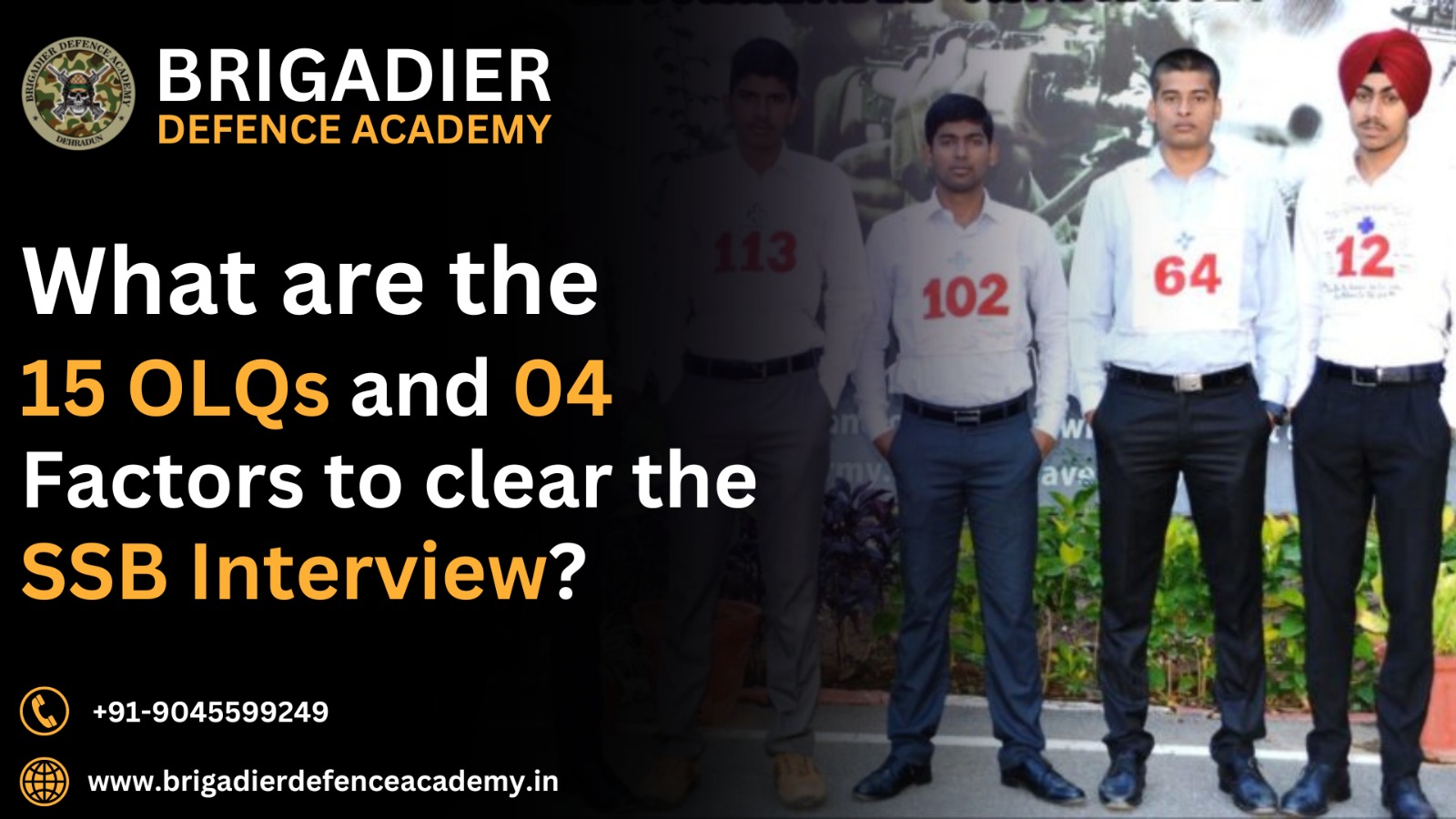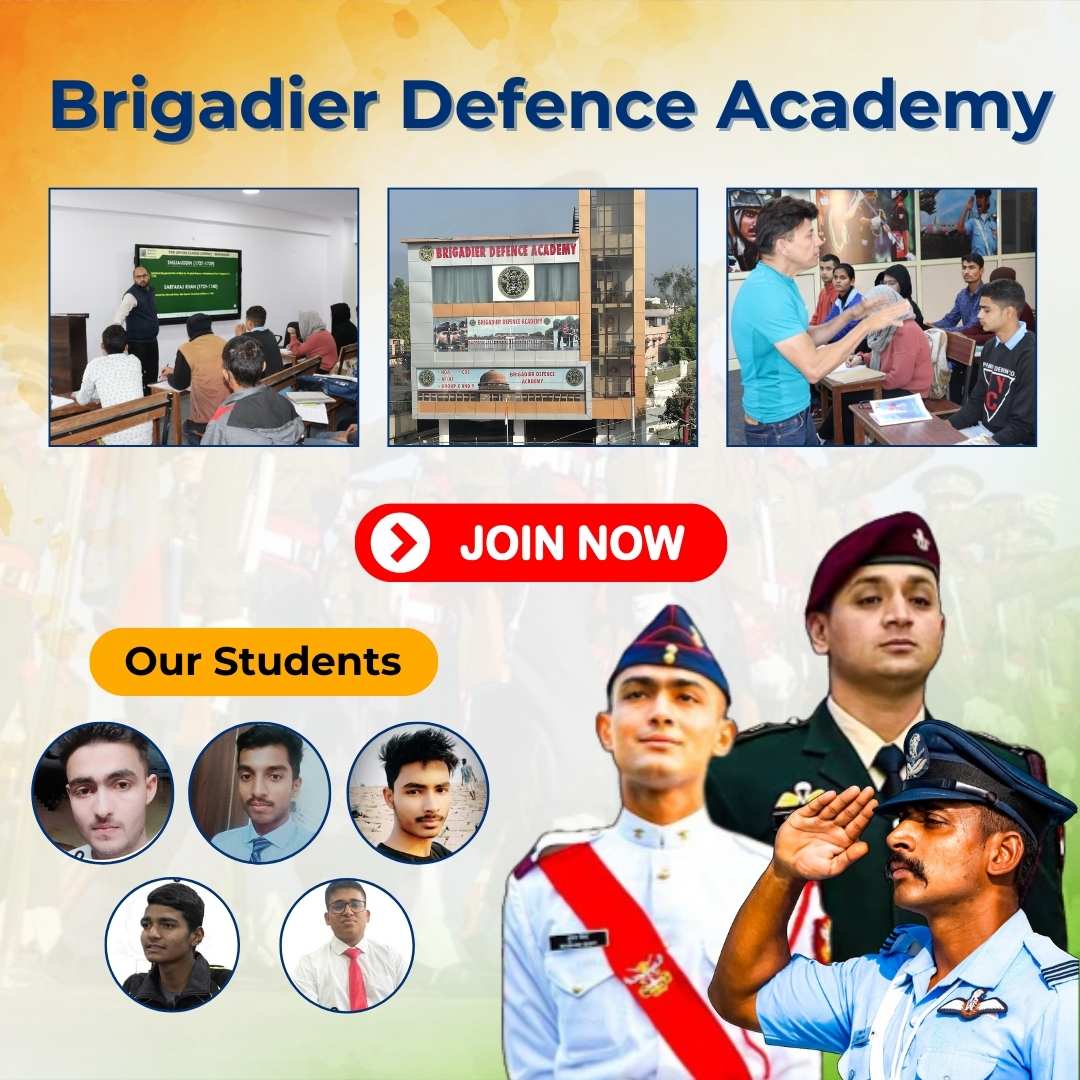- Posted on
- Manya
- No Comments
15 OLQs (Officer Like Qualities):
- Effective Intelligence:
- Effective intelligence is a critical OLQs quality for officers in any military branch. It involves the ability to swiftly and accurately assess situations, gather relevant information, and make informed decisions.
- Officers with effective intelligence can analyze complex scenarios, anticipate potential challenges, and devise appropriate strategies to address them.
- This quality is essential in dynamic and fast-paced environments where split-second decisions can have significant consequences.
- Reasoning Ability:
- Reasoning ability OLQs is the capacity to think logically, critically evaluate information, and draw sound conclusions.
- Officers often encounter situations where they must analyze multiple variables, weigh different options, and choose the most optimal course of action.
- Strong reasoning skills enable officers to solve problems efficiently, adapt to changing circumstances, and navigate challenging scenarios effectively.
- Organizing Ability:
- Organizing ability refers to the skill to coordinate resources, tasks, and personnel effectively to achieve objectives.
- Officers must plan and execute missions, manage logistics, and ensure that all components of a task are well-coordinated and synchronized.
- This quality is crucial for maintaining operational efficiency, maximizing productivity, and achieving mission success.
- Power of Expression:
- The power of expression encompasses both verbal and written communication skills.
- Officers must be able to convey instructions, articulate ideas, OLQs and communicate effectively with subordinates, peers, and superiors.
- Clear and concise communication is vital for ensuring that information is conveyed accurately, directives are understood, and objectives are achieved.
- Social Adaptability:
- Social adaptability involves the ability to interact harmoniously with OLQs individuals from diverse backgrounds, cultures, and perspectives.
- Officers often work in multicultural environments and must build rapport with team members, allies, and local populations.
- This quality enables officers to foster collaboration, build trust, and navigate intercultural dynamics effectively.
- Cooperation and Sense of Responsibility:
- Cooperation and a sense of responsibility are fundamental for effective teamwork and leadership for OLQs.
- Officers must foster a collaborative environment, where team members support and complement each other’s strengths and weaknesses.
- Taking responsibility for one’s actions and decisions is integral to maintaining accountability, integrity, and professionalism.
- Initiative:
- Initiative refers to the ability to take proactive steps and make decisions independently when necessary.
- Officers must demonstrate initiative in identifying opportunities, solving problems, and seizing the initiative in dynamic and uncertain situations.
- This quality is essential for driving innovation, adapting to change, and achieving mission success in challenging environments.
- Self-Confidence:
- Self-confidence is the belief in one’s abilities, judgment, and decisions.
- Officers must project confidence and authority while maintaining humility, approachability, and openness to feedback.
- Confidence inspires trust, instills morale, and enhances leadership effectiveness, especially in high-pressure and ambiguous situations.
- Liveliness:
- Liveliness encompasses enthusiasm, energy, and a positive attitude.
- Officers with liveliness exude passion for their work, inspire others, and maintain morale even in challenging circumstances.
- This quality fosters a culture of motivation, resilience, and optimism within teams and organizations.
- Determination:
- Determination is the resolve to persevere and overcome obstacles in pursuit of goals.
- Officers must demonstrate resilience, grit, and a never-say-die attitude when facing adversity or setbacks.
- Determination fuels persistence, fosters a culture of excellence, and drives individuals and teams towards achieving their objectives.
- Courage:
- Courage is the willingness to face danger, adversity, or risk, even in the face of fear.
- Officers must exhibit moral, physical, and emotional courage in challenging and hazardous situations.
- Courageous leadership inspires confidence, instills trust, and motivates others to follow, even in the most daunting circumstances.
- Stamina and Drive:
- Stamina and drive are essential for enduring the physical and mental demands of military life.
- Officers must maintain peak physical fitness, mental resilience, and a relentless pursuit of excellence.
- This quality enables officers to sustain performance over prolonged periods, operate in austere environments, and persevere through fatigue and hardship.
- Selflessness and Loyalty:
- Selflessness involves prioritizing the welfare of others and the mission above personal interests.
- Officers must demonstrate OLQs, loyalty to their country, their comrades, and their organization, even at personal cost.
- This quality fosters a culture of trust, cohesion, and sacrifice within military units, essential for accomplishing missions and achieving collective goals.
- Sense of Responsibility:
- Responsibility entails being accountable for one’s actions, decisions, and commitments.
- Officers must uphold the values, OLQs, ethics, and standards of their profession and ensure the well-being and safety of those under their command.
- A strong sense of responsibility fosters trust, credibility, and respect, essential for effective leadership and organizational integrity.
- Social Adaptability:
- Social adaptability involves the ability to interact effectively with OLQs individuals from diverse backgrounds, cultures, and perspectives.
- Officers often work in multicultural environments and must build rapport with team members, allies, and local populations.
- This quality enables officers to foster collaboration, build trust, and navigate intercultural dynamics effectively.
04 Factors for Clearing SSB Interview:
- Physical Fitness:
- Physical fitness is a fundamental requirement for military service.
- Candidates must meet specific physical standards, including endurance, strength, agility, and overall fitness, to perform duties effectively and withstand the rigors of military training and operations.
- Intelligence Quotient (IQ) Test:
- The IQ test evaluates candidates’ cognitive abilities, including reasoning, numerical aptitude, and spatial awareness.
- Strong intellectual capabilities are essential for problem-solving, decision-making, and adapting to the intellectual challenges of military service.
- Psychological Tests:
- Psychological tests assess candidates’ personality traits, leadership potential, emotional stability, and social adaptability.
- These tests help identify candidates who possess the psychological attributes necessary for effective leadership, teamwork, and resilience in demanding and high-stress environments.
- Group Testing Officer (GTO) Tasks:
- GTO tasks assess candidates’ ability to work collaboratively, communicate effectively, solve problems, and make decisions under pressure.
- Candidates participate in group activities, such as obstacle courses, team challenges, and role-playing exercises, to demonstrate their leadership potential, teamwork skills, and capacity to perform effectively as part of a military unit.
By excelling in these 15 OLQs and demonstrating proficiency in the four essential factors, candidates can significantly increase their chances of clearing the SSB interview and pursuing a successful career in the armed forces.







